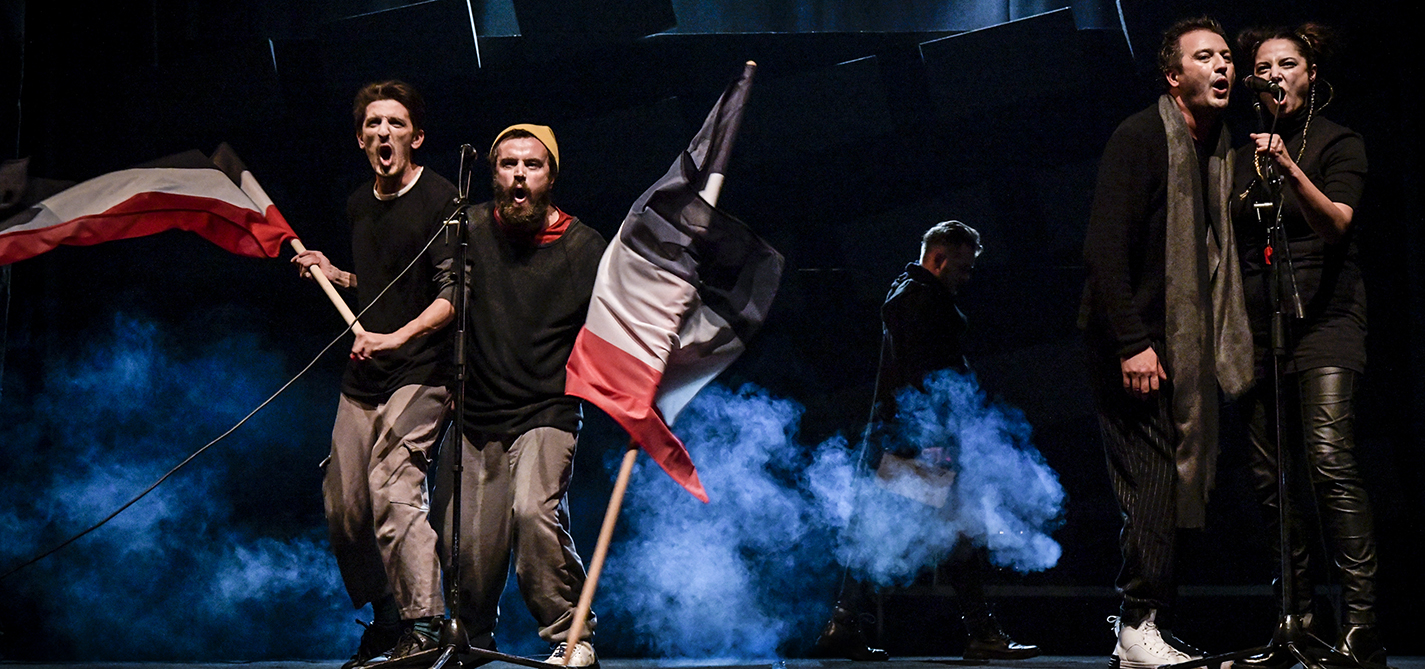
“The Return of Karl May”
A play that reverts the Orientalist gaze.
|02.11.2020
|
Evocative moments arise especially when an apparently loosely conversation between actors and directors unexpectedly passes over to a well rehearsed pivotal scene.

Edona Kryeziu
Edona Kryeziu was a journalist covering Arts & Culture at K2.0. She holds a Bachelor of Arts from Maastricht University, the Netherlands, and a Masters Degree in Migration & Diaspora Studies (Visual Anthropology) from SOAS London University, UK.
This story was originally written in English.